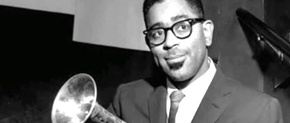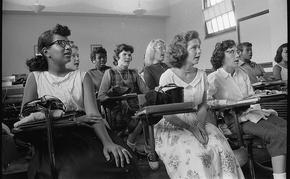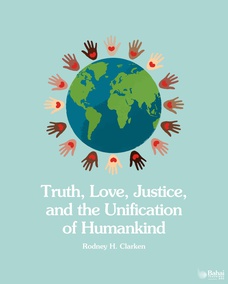The views expressed in our content reflect individual perspectives and do not represent the authoritative views of the Baha'i Faith.
The year 2021 represents a distinctive one for Baha’is, as we celebrate and honor the life of Abdu’l-Baha during the 100th year since his passing.
The son of Baha’u’llah, the prophet and founder of the Baha’i Faith, Abdu’l-Baha occupies a unique station in the history of religion, considered somewhere between a human and a prophet of God. In the words of Shoghi Effendi, the Guardian of the Baha’i Faith and Abdu’l-Baha’s own grandson:
… in the person of Abdu’l-Baha the incompatible characteristics of a human nature and superhuman knowledge and perfection have been blended and are completely harmonized.
RELATED: Who Is Abdul-Baha and Why Is His Station Significant?
Abdu’l-Baha was born in Ṭehran, Iran, on May 23rd, 1844, at the precise moment when a new era began in the spiritual and social evolution of the world. On the very day the Bab, the precursor and herald of Baha’u’llah, announced his own new revelation, Abdu’l-Baha came into the world. He would later embody the Baha’i revelation’s highest teachings and aspirations, becoming not only the head of the Faith but its true exemplar. Given the name Abbas, he later became known by the title of Abdu’l-Baha, which means “servant of glory.”
The relationship he had with his own father, Baha’u’llah, was not typical of a child-parent relationship. At the age of six, he was the first to recognize the station of his father, and thus might be considered the first Baha’i. Munirih Khanum, Abdu’l-Baha’s wife, describes how this occurred, when he:
… realized that His own beloved Father was he Who should educate mankind in universal conceptions, abolish prejudices, bring unity and the most Great Peace into the distracted world, establish the Kingdom of God upon this sad earth, by making religion again a healing spring for all woes of the world, He understood why the Manifestation had once again become the cause of evil men’s hatred and malignant persecution.
Thereafter, she says, Abdu’l-Baha “… consecrated Himself, body and soul and spirit, to the sacred work of the Baha’i Cause, spreading abroad the new message of Love and Justice.”
Exiled and imprisoned with the family, suffering hardship for many years because of Baha’u’llah’s banishment and exile, and educated only in the confines of his restricted circumstances, he was finally released after 56 years of imprisonment and able to receive visitors in Akka, a prison city in the Holy Land where he had been banished.
Following the passing of Baha’u’llah in 1892, Abdu’l-Baha inherited the mantle of leadership for the world’s Baha’is, demonstrating remarkable insight and abilities. The Universal House of Justice, the democratically-elected governing body of the Baha’i world, writes:
With the setting of the Sun of Baha, the Moon of His Covenant rose in reflected glory, lifting the darkness of a night of despair, and lighting the path to the unity of all humankind. In the fullness of its radiance stands the magnetic Figure of Abdu’l-Baha, the beloved Son Whom Baha’u’llah designated as the Interpreter of His Word and Executive of His authority, and Whom He appointed the Centre of His Covenant, an office without parallel in all religious history.
RELATED: Abdu’l-Baha’s Relationship to His Father, Baha’u’llah
Along with being called “The Master” and “The Mystery of God,” Abdu’l-Baha was also referred to as the “Most Great Branch” by Baha’u’llah. An early Baha’i, Ḥaji Mirza Ḥaydar-Ali, recorded Baha’u’llah’s own description and predictions about Abdu’l-Baha:
In the future it will be seen how He, alone and unaided, shall raise the banner of the Most Great Name in the midmost heart of the world, with power and authority and Divine effulgence. It will be seen how He shall gather together the peoples of the earth under the tent of peace and concord. At stated periods souls are sent to earth by the Mighty God with what we call the Power of the Great Ether. And they who possess this power can do anything; they have all power … Jesus Christ had this power. People thought of Him as a poor young man Whom they had crucified; but He possessed the Power of the Great Ether. Therefore He could not remain underground. This ethereal Power arose and quickened the world. And now look to the Master, for this Power is His.
In so many ways, Abdu’l-Baha exemplified what it meant to be a Baha’i. In reading stories of his life and his impact on others, he became a father figure to so many of his day – and we can see him as a father figure now.







![[God] hath made woman and man to abide with each other in the closest companionship, and to be even as a single soul. They are two helpmates, two intimate friends, who should be concerned about the welfare of each other. If they live thus, they will pass through this world with perfect contentment, bliss, and peace of heart, and become the object of divine grace and favour in the Kingdom of heaven. But if they do other than this, they will live out their lives in great bitterness, longing at every moment for death, and will be shamefaced in the heavenly realm. Strive, then, to abide, heart and soul, with each other as two doves in the nest, for this is to be blessed in both worlds. – #AbdulBaha #Love #Marriage #Companionship #BahaiFaith
(Selections from the Writings of ‘Abdu’l-Bahá, paragraphs 92.1–92.3)](https://media.bahaiteachings.org/sb-instagram-feed-images/487782836_18497319871023335_4819806972653811469_n__v284x284__.jpeg)








Comments
Sign in or create an account
Continue with Googleor